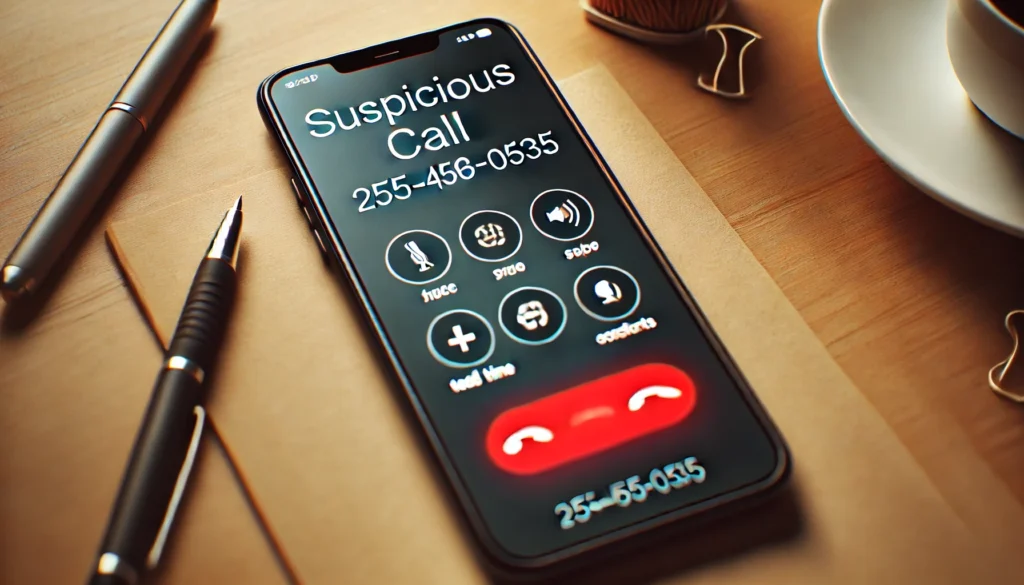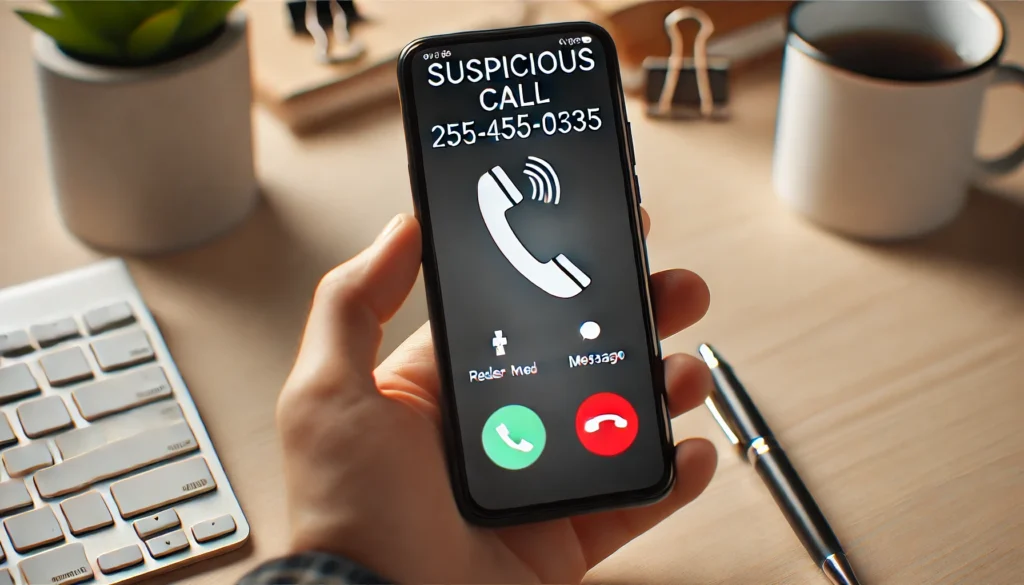Is 254-500-0535 a Scam? Uncovering the Truth Behind This Number

Introduction
Have you received a call from 254-500-0535 and wondered whether it’s legitimate or a scam? You’re not alone. Thousands of people report receiving suspicious calls daily, and this number has sparked concern among many. This guide is here to provide you with everything you need to know about 254-500-0535, from its origins to how you can protect yourself from potential scams. Our aim is to deliver a comprehensive, easy-to-understand resource that will empower you to handle such situations confidently.
What is the 254 Area Code?
The 254 area code is assigned to central Texas, covering cities like Waco, Killeen, and Temple. Introduced in 1997, this area code replaced part of the 817 area code to accommodate the growing demand for phone numbers. While legitimate businesses and residents use the 254 area code, scammers can exploit it to mask their identity and make their calls seem trustworthy.
Cities Covered by the 254 Area Code
| City | Population | Key Industries |
|---|---|---|
| Waco | 140,000 | Education, Healthcare |
| Killeen | 153,000 | Military, Retail |
| Temple | 80,000 | Manufacturing, Tourism |
Understanding the geographic scope of the 254 area code helps you assess whether a call might be legitimate. However, modern scammers often use spoofing techniques to disguise their actual location.
The Mystery Behind 254-500-0535
Calls from 254-500-0535 have been described as ranging from vague to aggressive. Many people report receiving robocalls, sales pitches, or claims about winning prizes. These calls often leave recipients feeling confused and wary. By analyzing reports from users, several patterns emerge:
- Unsolicited Calls: Many people report receiving calls out of the blue.
- Aggressive Sales Tactics: Some claim the callers pressure them to make immediate decisions.
- Vague Information: Callers often refuse to disclose clear details about their identity or purpose.
Is 254-500-0535 a Scam?
While not every call from 254-500-0535 is necessarily fraudulent, many red flags suggest the number is commonly used by scammers. Here are some warning signs to watch for:
Common Scam Tactics
- Caller ID Spoofing: Scammers disguise their numbers to appear local and trustworthy.
- Prize Claims: Offers of “free” vacations or winnings that require upfront payments.
- Urgent Requests: Demands to act immediately to avoid penalties or gain rewards.
If you’ve encountered any of these tactics, it’s crucial to remain vigilant and take the necessary precautions.
How to Protect Yourself from Potential Scams
Protecting yourself from phone scams requires a mix of awareness and tools. Here’s how you can stay safe:
Verify the Caller’s Identity
Always ask for the caller’s name, organization, and contact information. If they hesitate or provide vague details, it’s a major red flag.
Use Call-Blocking Tools
Consider installing apps like Truecaller or Hiya to identify and block suspicious numbers. These apps maintain updated databases of known scam numbers, including 254-500-0535.
Report Suspicious Calls
If you suspect a scam, report it to relevant authorities, such as the Federal Trade Commission (FTC) or the Federal Communications Commission (FCC). Many community platforms also allow users to share their experiences and warn others.
Real-Life User Experiences
To provide more context, let’s look at real-life testimonials:
- User 1: “I received a call claiming I’d won a cruise. They asked for my credit card details to secure the prize. Thankfully, I hung up and reported the number.”
- User 2: “The caller was aggressive, demanding payment for a debt I didn’t recognize. When I asked for details, they hung up.”
These examples highlight common scenarios that can help you identify suspicious calls.
Legal Aspects of Scam Calls
Scam calls often violate federal laws. The FCC regulates telemarketing and protects consumers from illegal practices like:
- Robocalls: Automated calls made without prior consent.
- Caller ID Spoofing: Manipulating caller ID information to deceive recipients.
If you believe you’ve been targeted, you can file a complaint through the FCC’s online portal.
How to Identify Legitimate Calls from Texas Numbers
Not all calls from the 254 area code are scams. Here’s how you can differentiate:
- Professional Tone: Legitimate businesses maintain a polite and professional approach.
- Clear Information: They provide detailed information about their organization and purpose.
- No Pressure: Genuine callers won’t rush you into decisions or payments.
Tools and Resources for Fighting Phone Scams
Here are some resources to help you combat phone scams:
- Apps: Truecaller, Hiya, RoboKiller
- Government Websites: FCC, FTC
- Community Platforms: Websites like WhoCalledMe provide forums for reporting and discussing suspicious numbers.
FAQs About 254-500-0535
What should I do if I answered a call from 254-500-0535?
Avoid sharing personal information and hang up if the call seems suspicious.
Can scammers steal my information through a phone call?
Yes, especially if you share sensitive details like your Social Security number or banking information.
How do I block calls from 254-500-0535?
Use your phone’s built-in blocking feature or third-party apps.
What if the caller claims to be from a government agency?
Verify their identity by contacting the agency directly using official contact information.
Are there legitimate reasons for receiving calls from this number?
It’s possible, but always verify the caller’s identity to ensure authenticity.
Conclusion
Calls from 254-500-0535 can be unsettling, but staying informed is your best defense. By understanding the tactics scammers use, employing protective tools, and reporting suspicious calls, you can safeguard yourself and others. Share this guide with friends and family to spread awareness and help combat phone scams effectively.
Additional FAQs:
Can scam calls like 254-500-0535 leave harmful voicemails?
Yes, some scams involve leaving voicemails with threats or fake offers. Learn how to identify these and avoid calling back.
What steps should I take if a scammer leaves a threatening message?
Do not engage with the caller. Save the voicemail and report it to the appropriate authorities.
Is it safe to call back numbers like 254-500-0535?
Generally, no. Calling back can verify your number as active, leading to more scam calls.
How do I recognize legitimate debt collection calls versus scams?
Genuine collectors provide detailed information about the debt, including verification letters. Scammers often refuse to share details.
Can scammers gain access to my phone through answering their call?
Not directly, but engaging with them or following prompts can compromise your data. Always avoid pressing keys or sharing information.
Recommended Articles:
Can I Buy 1.5f8-p1uzt? The Ultimate Guide to Purchasing and Using 1.5f8-p1uzt
Emmyhii777: Guide to Following the Influencer Everyone’s Talking About
TheOneGlado: A Comprehensive Guide to the Revolutionary Platform
Comprehensive Guide to Velvetecstasy.com Aryana Adin K2s.cc
Is 254-500-0535 a Scam? Uncovering the Truth Behind This Number







